Arseny Kuznetsov
Independent Component Alignment for Multi-Task Learning
May 30, 2023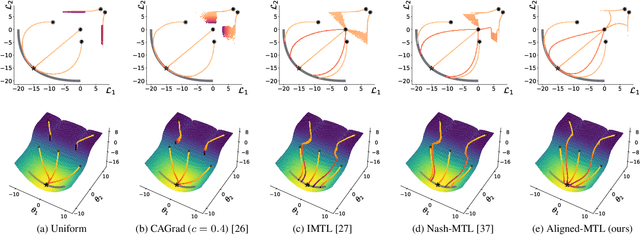
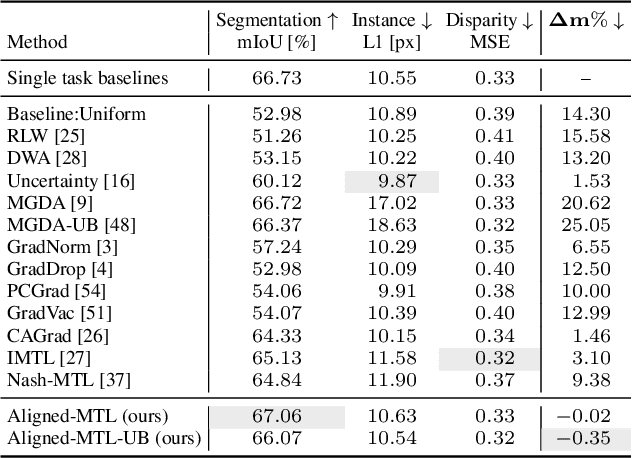
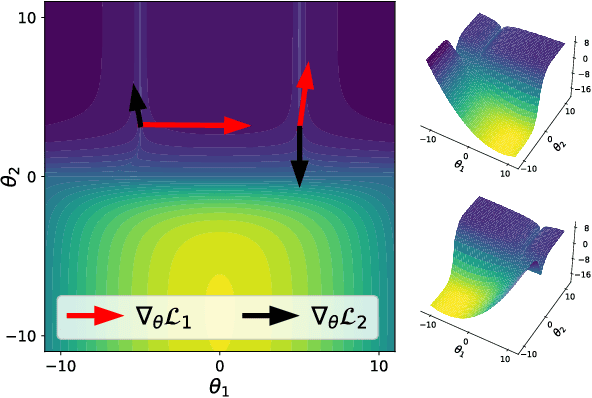
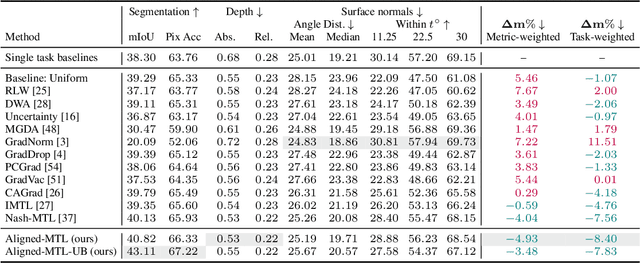
Abstract:In a multi-task learning (MTL) setting, a single model is trained to tackle a diverse set of tasks jointly. Despite rapid progress in the field, MTL remains challenging due to optimization issues such as conflicting and dominating gradients. In this work, we propose using a condition number of a linear system of gradients as a stability criterion of an MTL optimization. We theoretically demonstrate that a condition number reflects the aforementioned optimization issues. Accordingly, we present Aligned-MTL, a novel MTL optimization approach based on the proposed criterion, that eliminates instability in the training process by aligning the orthogonal components of the linear system of gradients. While many recent MTL approaches guarantee convergence to a minimum, task trade-offs cannot be specified in advance. In contrast, Aligned-MTL provably converges to an optimal point with pre-defined task-specific weights, which provides more control over the optimization result. Through experiments, we show that the proposed approach consistently improves performance on a diverse set of MTL benchmarks, including semantic and instance segmentation, depth estimation, surface normal estimation, and reinforcement learning. The source code is publicly available at https://github.com/SamsungLabs/MTL .
Semantic embeddings for program behavior patterns
Apr 10, 2018
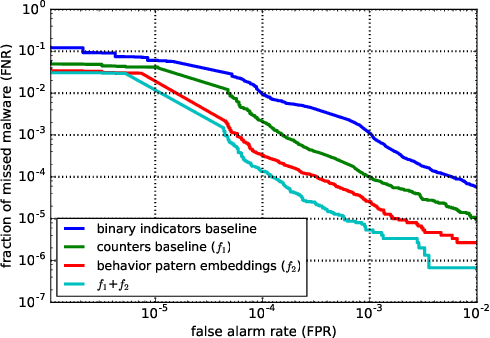

Abstract:In this paper, we propose a new feature extraction technique for program execution logs. First, we automatically extract complex patterns from a program's behavior graph. Then, we embed these patterns into a continuous space by training an autoencoder. We evaluate the proposed features on a real-world malicious software detection task. We also find that the embedding space captures interpretable structures in the space of pattern parts.
 Add to Chrome
Add to Chrome Add to Firefox
Add to Firefox Add to Edge
Add to Edge